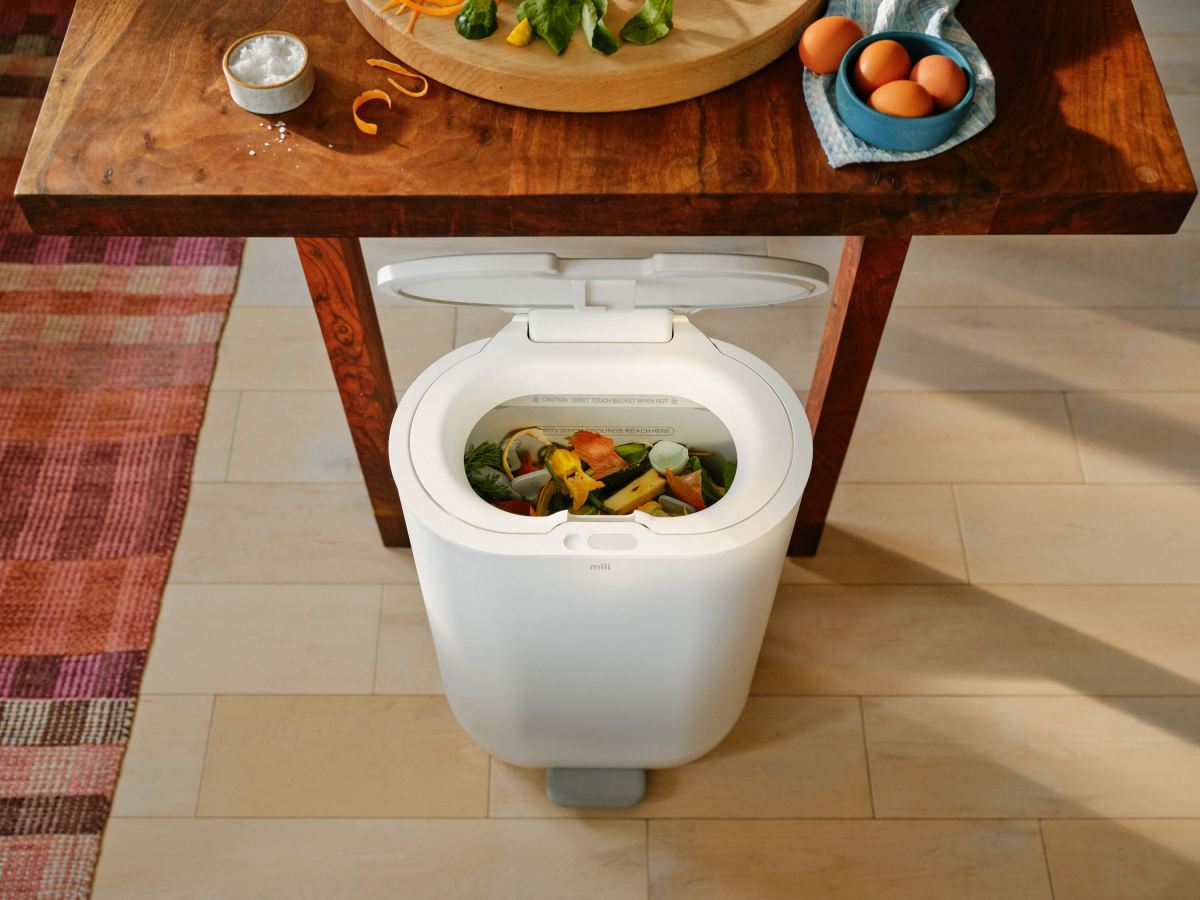The updated bin maintains a sleek, modern look but features enhanced internal components. Matt Rogers, co-founder of Mill, shared that the new design is not only more energy-efficient but also much faster than its predecessor. Instead of taking 20 hours to complete a cycle, the new bin can finish processing by breakfast time.
Key changes to the internals include repositioning the grinding paddles and restructuring the drying function to surround the entire bin with heating elements. Additionally, a charcoal filter has been added to prevent any unpleasant odors. This redesign allows for a quicker and more effective process.
Initially known for its partnership with the U.S. Postal Service for collecting grounds, Mill has expanded its reach beyond this program. Grounds collected from households are now being utilized by nearby farms like R.City in Phoenix. This closed-loop system ensures that food waste is repurposed back into the local food system, benefitting the community.
In terms of pricing, customers now have the option to purchase the bin outright for $999 or subscribe for $360 annually. A trial period of 30 days is available for those interested. With a focus on consumer hardware and sustainability, Mill stands out in the climate tech space. Though consumer hardware can be challenging, the founders’ experience from Nest has enabled them to quickly iterate on the product.
Customer reception has been overwhelmingly positive, with the initial batch selling out and a high net promoter score. With a substantial funding of over $232 million and a growing revenue stream, Mill is well-positioned to navigate the challenges faced by early-stage startups.
For Rogers, there is a sense of urgency in addressing food waste and reducing emissions. Despite diverting 1 million pounds of food waste from landfills, he believes more needs to be done to accelerate the decline in emissions. With a strong determination and a solid foundation, Mill is driving towards a greener and more sustainable future.


